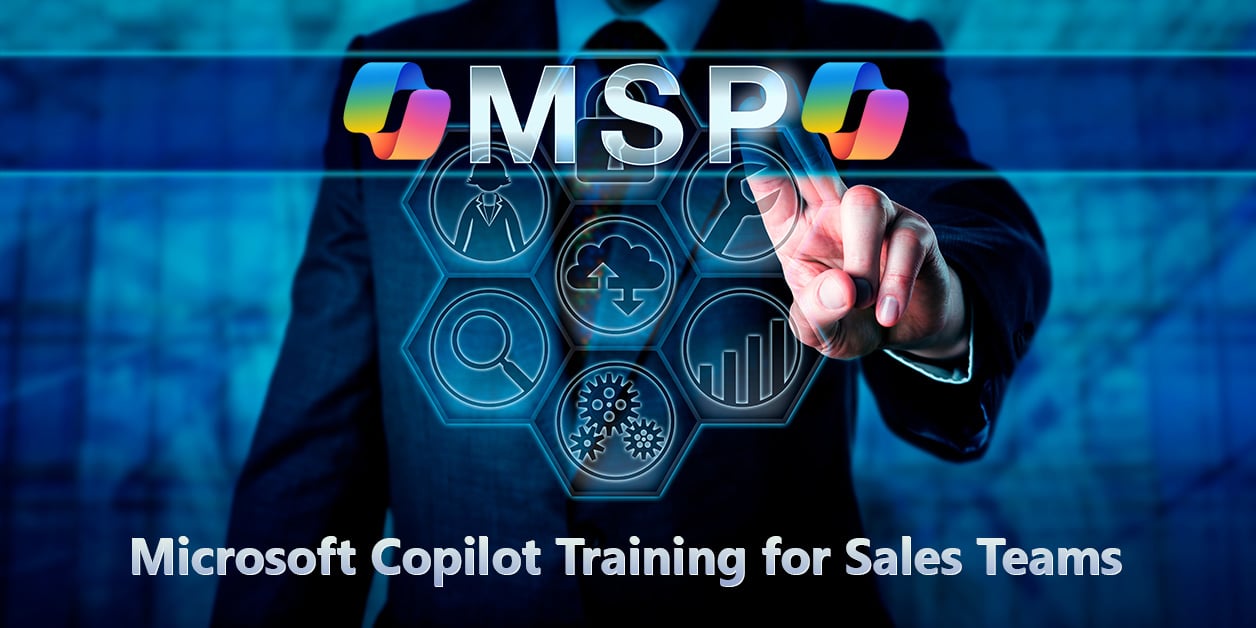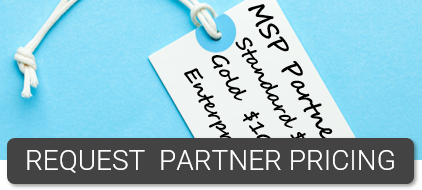
In today's business world, organizations are constantly seeking ways to boost productivity without breaking the bank. As a Managed Service Provider (MSP) or IT professional, you're on the front lines helping these clients navigate the latest tools. Microsoft Copilot is a game-changer, an AI assistant built into Microsoft 365. But not all versions of Copilot are created equal. There's a free version included with Microsoft 365 subscriptions, and a paid upgrade that unlocks more powerful features for an additional fee.
As an MSP, training your internal staff on the differences between these versions is crucial. It equips your team to guide clients toward the right choice, saving time, reducing frustration, and ultimately driving business growth. Without this knowledge, sales conversations can feel overwhelming or vague, leaving clients unsure if the investment is worth it, if your team has what it takes to provide digital expertise and leadership.
In this post, we'll break it down at a business level focusing on how each version of Copilot helps everyday employees, with some real-world examples. This post alone will help your sales team feel ready to explain Copilot confidently, helping clients make informed decisions. You can also take it a step further with KnowledgeWave's Sales Enablement Solution for IT Sales Teams.
Understanding the Basics: Free vs. Paid Copilot
Microsoft 365 already comes with a free version of Copilot called Copilot Chat. It's like having a smart assistant right in your browser or app, available to anyone with a work Microsoft 365 account. This basic tool uses AI to answer questions, summarize info from the web, and handle simple tasks. It's great for quick help without any extra cost, making it an easy entry point for small businesses dipping their toes into AI. Think of it as Microsoft's version of ChatGPT.
The paid version, Microsoft 365 Copilot, builds on that foundation. For about $30 per user per month (on top of your existing Microsoft 365 plan), it integrates deeply into the apps your team uses daily like Outlook, Word, Excel, and Teams. This upgrade accesses your company's own data (think emails, files, and calendars) to provide tailored insights, not just general web info. It's designed for businesses where collaboration and efficiency can make or break a quarter.
Meet the Copilot Versions (Watch a Video)
Why does this matter for your clients? Small businesses often juggle limited resources. The free version keeps things simple and cost-free, ideal for basic needs. But over time, the paid version turns AI into a strategic advantage, automating repetitive work and sparking creativity. Trained MSP staff can spot when a client is outgrowing the free tools and pitch the upgrade as a smart investment, potentially saving their clients hours per week per employee, and boosting their licensing commitment. This also provides project opportunity specific to copilot readiness.
Real-World Examples: How Copilot Helps Employees
Let's look at how these versions play out in daily tasks. Imagine a small marketing firm or copier sales business with 50 employees. Here's how Copilot can assist, starting with the free version and showing the paid upgrade's edge.
Summarizing Emails
Emails can pile up fast, especially in a growing business. With the free Copilot Chat, an employee pastes an email thread into the chat interface. Copilot quickly scans it and provides a concise summary, highlighting key points like action items or deadlines. For example, a sales rep gets a long client email about project changes; Copilot boils it down to: Client requests delay in delivery by two weeks and adds a new feature. Respond by Friday.
The paid version takes this further by working directly in Outlook. No copying and pasting needed. It automatically suggests summaries as you scan your inbox, pulling in context from your entire email history and shared calendars. In a team of 20, this could cut email review time by 30%, freeing staff for client calls. Your sales team can tell clients: Imagine your team spending less time on inbox overload and more on revenue-generating work.
Creating Formulas in Excel
Spreadsheets are the backbone of small business operations, from tracking inventory to budgeting. The free Copilot Chat helps here, too. Employees describe their data in the chat, like "Calculate total sales for Q1 from this list," and upload a file. Copilot generates a simple formula suggestion, such as =SUM(B2:B10), and explains it in plain English. This does come with some risk, as employees could potentially upload sensitive or confidential information.
The paid Copilot shines in Excel itself. Highlight a dataset, and it intuitively creates complex formulas, charts, or even forecasts based on your business data. For a retail manager analyzing 500 rows of sales figures, Copilot might suggest: "Based on trends, project a 15% growth next month, here's the formula: =FORECAST.LINEAR(..., A:A, B:B). It also connects to company files, so it knows your seasonal patterns without manual input. This level of smarts can turn a novice user into a data whiz, helping businesses spot opportunities faster. MSPs trained on this can demo it live, showing clients how it reduces errors and speeds up reporting.
Editing and Improving Word Documents
Drafting proposals or reports is time-consuming for small teams. Free Copilot Chat lets users upload a Word doc and ask for tweaks, like "Make this introduction more engaging." It rewrites sections, suggests better phrasing, or checks for clarity, delivering an improved version to copy back into your document.
The paid upgrade embeds right into Word, rewriting on the fly while considering your company's style or past documents. For a consultant preparing a 10-page client proposal, Copilot could enhance it by: Adding bullet points for readability, incorporating data from your recent Excel report, and ensuring a professional tone. It even generates outlines or visuals. In organizations with 100+ employees, this streamlines document creation, ensuring consistency and professionalism without needing a full writing team.
These examples illustrate the progression: Free Copilot handles one-off tasks efficiently, while the paid version weaves AI into workflows, making it feel like a virtual colleague. A colleague that is all knowing across the Microsoft 365 ecosystem.
The Business Case: Training MSPs to Drive Client Success
For MSPs serving small businesses, understanding Copilot isn't just nice, it's essential for staying competitive. Clients in the 10-500 employee range often lack in-house IT experts, so they rely on you for guidance. A well-trained sales team can explain: Start with the free version to test AI's value, then scale to pay for deeper integration that pays for itself in productivity gains.
The ROI is clear. Studies show AI tools like Copilot can save businesses up to 10 hours per week per user on routine tasks, translating to thousands in annual savings for a mid-sized firm. But without training, your team might undersell the paid features or confuse clients with inaccurate jargon. Invest in KnowledgeWave s Sales Enablement Solution for IT sales teams and watch your client relationships strengthen. You'll position your MSP as a trusted advisor, with knowledge of the latest trends and tools, not just a tech fixer.
Read More about our Copilot Program: Your Sales Enabled Solution for IT Sales Teams
Microsoft Copilot empowers your IT staff to demystify AI for small businesses. By highlighting the free version's accessibility and the paid one's transformative power, you help clients work smarter. Ready to level up? Encourage your team to explore Copilot today and start those informed conversations tomorrow. Interested in a more formal program for your sales team? Reach out to KnowledgeWave today, 800-831-8449.







